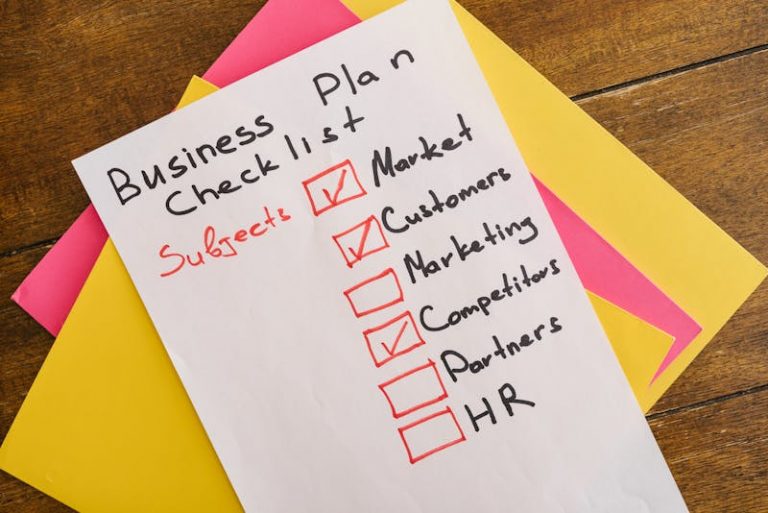

It can be hard to focus on running your business when you are more concerned about how it will stay secure. With all of the business hacking and robberies going on over the past decade, staying secure has never been more important. It would be best if you planned for things to go wrong ahead of time. Depending on what kind of company you run, you could put yourself at risk if you do not protect your investment properly. This may seem daunting, but it is not as difficult as it might seem, thanks to the ultimate guide to keeping your business secure, below.

Install Security Alarms and Cameras
The first step in the guide to keeping your business secure is having a plan in place should a break-in occur. When determining the best business security measures, business owners must consider what is important to their business and its employees. This will determine which business security protocols are right for them.
For example, if one of your priorities is protecting merchandise, you may want to consider installing surveillance cameras throughout the business to be able to catch robbers in the act. On the other hand, office security measures could include business alarms or security window film which makes it difficult for robbers to see inside a building, foiling their plans.
Business security systems like alarms are designed to alert business owners to criminals who may be breaking in, and they also scare off the criminals because business owners can call security or law enforcement before anything gets stolen.
As you look at the guide to keeping your business secure, it is important to note that each piece of business security equipment has pros and cons. Business owners must weigh the costs against business priorities to determine which business security measures are best for their business.
Always Be Prepared
Another important step in the guide to keeping your business secure is assessing your assets and risks and being proactive about any potential threats before they can do any damage. Businesses today reside in a business ecosystem where cybercriminals are continuously developing new techniques and strategies to infiltrate networks, steal information, and cause disruption.
Employee awareness is a critical component of business security, and managing it should not just be an afterthought. Employees need to follow business-appropriate policies and procedures to support business security. It is important to educate the staff on a guide to keeping your business secure through password protection and account hygiene management, such as creating complex passwords.
Business insurance is another way to be proactive and prepared in the event of something going wrong. If the business becomes compromised, insurance will help you keep it afloat until you can recover. Some policies also offer business monitoring services that watch out for any unusual behavior on business computers or networks, such as increased hacking attempts.

Stay Ahead of Dangers
One thing to prioritize in the guide to keeping your business secure is staying ahead of dangers. One way to achieve this is to ensure you have fire prevention measures. Fire prevention is not just about preventing fires but also about having plans for what to do in the event of a fire to reduce potential injuries.
Office workers are at high risk since they spend so much time sitting at their computers indoors. In the event of a fire, they will need to know how to exit the building quickly and orderly. Commercial fire alarms can help alert both employees and clients that it’s time to evacuate. Be sure to install several fire alarms throughout the building, especially if it is large, so that no one gets left behind.
These fire alarms should also be tested regularly to ensure they are working properly, just as homes have smoke detectors that need to be checked for batteries every three months. Also, considering that malware and hackers are always looking for new ways to crack corporate defenses, businesses need to be vigilant about protecting their systems and data. Ensure that your company’s antivirus and security software is kept up to date. Also, avoid suspicious websites and email attachments.
Secure the Property
In the guide to keeping your business secure, one thing to consider is securing your property. You can do this by installing commercial gates at the entrance to your business. These large metal doors are typically left open to allow clients and customers access during business hours and close at night, deterring robbers and other criminals.
These gates often have access control systems to monitor and limit who is coming onto the site. This can be done by contracting with a commercial gate access control company or by performing the installation yourself. It is important to find commercial access control solutions that fit within your budget while also ensuring your commercial site is protected from theft and unauthorized entry. Once your commercial premises are secure, it is imperative to ensure your commercial gate is also secure.

Change Locks Regularly
As a business owner, you know that both new hires and resignations are common throughout the life of your business. You will see many people come and go, and while you might be diligent about ensuring your old employees give back the keys you lent them, you can never be too careful. That’s why it’s so important to regularly change the locks on your property.
A malicious individual with a key copy can very easily get inside your business without any deterrents. You, on the other hand, can easily mitigate against this by hiring a commercial locksmith. The locksmith can change all of the locks and have new keys made, rendering any copies useless and spoiling the plans of would-be robbers. The more often you see employees come and go, the more often you should have your locks changed. While you’re at it, be sure to also change the codes to security alarms regularly if that is also something you give out to employees.
While working with your locksmith, you may want to consider non-traditional locks, such as smart locks that can track and log everyone who is entering the premises. Having this information handy can help you be informed about the going on in your own property and be useful if a break-in ever does occur. Talk with your locksmith about the options available.
Remove Potential Hazards
One important thing to keep in mind in the guide to keeping your business secure is that prevention is always better than reaction. In other words, it would be less expensive to take care of things that could cause harm rather than dealing with the repercussions of harm taking place.
Some of the things you can do at your property to remove hazards are plowing snow from parking lots, warning employees and clients of wet floors, and hiring tree removal services to take down dead and dying trees. While you may overlook many potential hazards, keep in mind that nothing is too small to potentially go wrong. Your business is your greatest asset so you should do everything you can to prevent a lawsuit. You also want to take good care of your employees and clients and look out for their well-being.
Hazards can also be as simple as having a dirty work environment, so be sure to hire cleaning services while you’re at it. A clean business and office will improve the health, happiness, and productivity of everyone involved.

Make Repairs Right Away
Anyone who owns a business knows everything that can go wrong with it. Aside from poor growth or robberies, the business property itself can also suffer from needing repairs. It is therefore essential to take care of those repairs right away before they get worse the same you would any other thing that could go wrong.
From HVAC to plumbing to roofing, always be sure your property is fully inspected and repaired. Commercial roofing contractors and any other help you need will be able to take care of this for you, but it’s up to you to hire them. If something breaks, it could become a hazard, and we’ve already covered why removing hazards is so important. Additionally, if you ignore repairs, they will worsen and eventually need to be replaced, costing you more money in the long run. So take the time to get that leaky faucet fixed and whatever else might not be up to par.
Have a Support Team
In the ultimate guide to keeping your business secure, one area where it is important for business owners to focus efforts on from day one is collaborating with others in similar types of businesses and also hiring a support team. This includes working with an attorney who specializes in business law and also business coaches or mentors who can provide advice and tips related to running your business successfully and keeping it secure.
It might seem counterintuitive to think that your business attorney should also be considered a business partner, but it is true. Your business attorney should not only advise you on legal matters related to running your business, but they should also proactively help you with issues related to security for your company. After all, if you choose someone with experience, they’ve seen it all and will know exactly how to help.
Plan for Worst-Case Scenarios
Every business owner knows that there are risks to their business. Therefore, business owners should minimize those risks and be prepared for anything that comes down the line. Sometimes though, despite all the planning and securing businesses do, the business fails due to factors out of their control.
One overlooked element in the guide to keeping your business secure is the need for a bankruptcy attorney. Business bankruptcy lawyers are attorneys who specialize in helping companies or business owners file for protection from creditors under a bankruptcy court order when they have fallen behind on bills or will fall behind soon.
The business may not have enough money available, meaning it would be nearly impossible to pay off its outstanding debt if forced to do so immediately. Bankruptcy lawyers work with companies to get them back on their feet by formulating a sound business strategy.
Business owners who want to be prepared for this crisis should make business contingency plans. This plan will be used if the business is about to fail or already has failed and would outline what steps to take to keep creditors at bay while keeping employees working until they can find new jobs, if that’s necessary. It also should include protection for both customers and other vital resources like equipment needed for production.
Through business continuity planning, business owners ensure that their business does not act as one large creditor for their business credit cards and accounts. The business continuity plan would ensure that the business still has access to vital business resources, like equipment needed for production.
Business owners should look into bankruptcy lawyers to get advice on business continuity planning and other business needs. If you need advice, your best course of action would be to speak with an experienced business bankruptcy attorney who can help you through this tough time.
Whether you are an experienced business owner who has been in your industry for many years or you are just starting out, securing your business is always where you should spend a lot of your time and effort. Plan well and get started right away.






